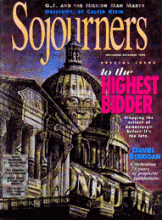In 1964, Annie Harper and other Virginia residents went to court to challenge the poll tax in their state elections because it discriminated against them on the basis of their poverty. By then, the 24th Amendment to the U.S. Constitution had been ratified, prohibiting the further use of the poll tax as a requirement for voting in federal
elections. By 1964, the poll tax remained as a barrier to the right to vote for poor African Americans and poor whites only in four Southern states. Virginia was one of those four.
Two years later, the United States Supreme Court issued its landmark ruling in Harper vs. Virginia Board of Elections,
and struck down the $1.50 poll tax in Virginia state elections. In a reversal of a 1937 Supreme Court decision, the court ruled that the poll tax violated the constitutional guarantee of equal protection for all. Annie Harper could no longer be barred from voting simply because she was poor.
With the Harper case, the Supreme Court for the first time articulated the constitutional principle that wealth must not serve as a barrier to equal participation in the democratic process. The court wrote: "We conclude that a State violates the Equal Protection Clause of the 14th Amendment whenever it makes the affluence of the voter or payment of any fee an electoral standard." The court further held: "Wealth, like race, creed, or color, is not germane to one's ability to participate intelligently in the electoral process."
Read the Full Article

